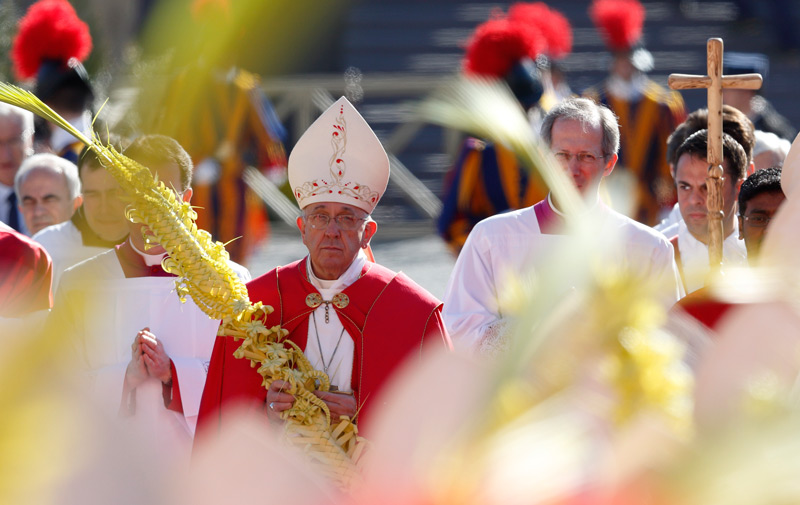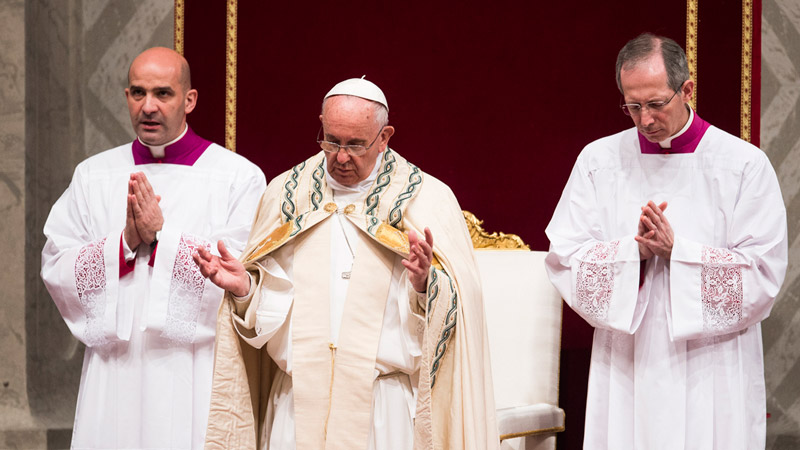
Just about every day drivers get cut off by lane-jumpers and see people making angry gestures. The networks bring up-to-the-minute reports of violence and the shouts of mobs. On weekends some fans behave like spoiled children, ball fields get trashed, and coaches are cussed out. Then there are our political campaigns.
Pope Francis has quoted the little-known St. Quodvultdeus: “You slay the bodies of the little ones because the fear in your heart is slaying you.” His remark about wrathful killings and harm to souls seems to illuminate a great deal about our problem with anger.
Much of the anger we witness seems rooted either in fear or self-preoccupation. Trivial outbursts arise from displeasure and inconvenience. We’re stuck in traffic and running late. Someone has gotten ahead of us unfairly. A game, a contest, or an awards ceremony hasn’t gone our way. We believe the selections for the cheering squad or the first string or the cast of the play are rigged. This type of anger bubbles up and turns others into adversaries.
The deeper anger, the anger fueling suicide bombers, shooters in malls, rioters and looters, runs deeper. It is rage born of fear for one’s life and fear of the world. Those who attack others believe that these others are bent on taking away their rights, their possessions, and possibly their God. They believe that they will be victimized and that their only recourse is to retaliate against the perceived victimizers or against random members of society. The cycle of fear spins out of control, and everyone is affected — shoppers, moviegoers, workers. More and more women carry guns. Some college students think they should pack heat as well as iPads.
None of this cultural rage is Christian. We know that, but we will likely be written off as naïve if we invoke St. Francis and pray that we be instruments of peace and sowers of love. We have to be clear that heeding the call to be peacemakers is not for wimps. We know that Jesus displayed righteous anger. We, His followers, are duty-bound to stand up for what is right and good and to work for good legislation and healing of ills — especially for God’s “little ones.”
We do have some cures for anger. The first step toward ratcheting it down is prayer, particularly the rosary. The second step is cultivating unselfishness within. The third is to be discerning about what merits a response, including a strong and just one, and what should simply be let go. The fourth is having enough self-discipline to seek creative ways to resolve conflicts and sometimes to give others the benefit of the doubt.
The First Letter of Peter tells the faithful: “Whoever would love life and see good days … must turn from evil and do good, seek peace and follow after it.” Perhaps an angry world will see some healing if we manage to keep our Christian cool.
Sister Pamela Smith, SSCM, is the Secretary for Education and Faith Formation at the Diocese of Charleston. Email her at psmith@catholic-doc.org.




